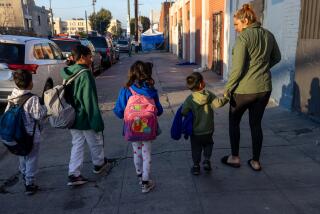Private sector seeks to profit by detaining migrant kids
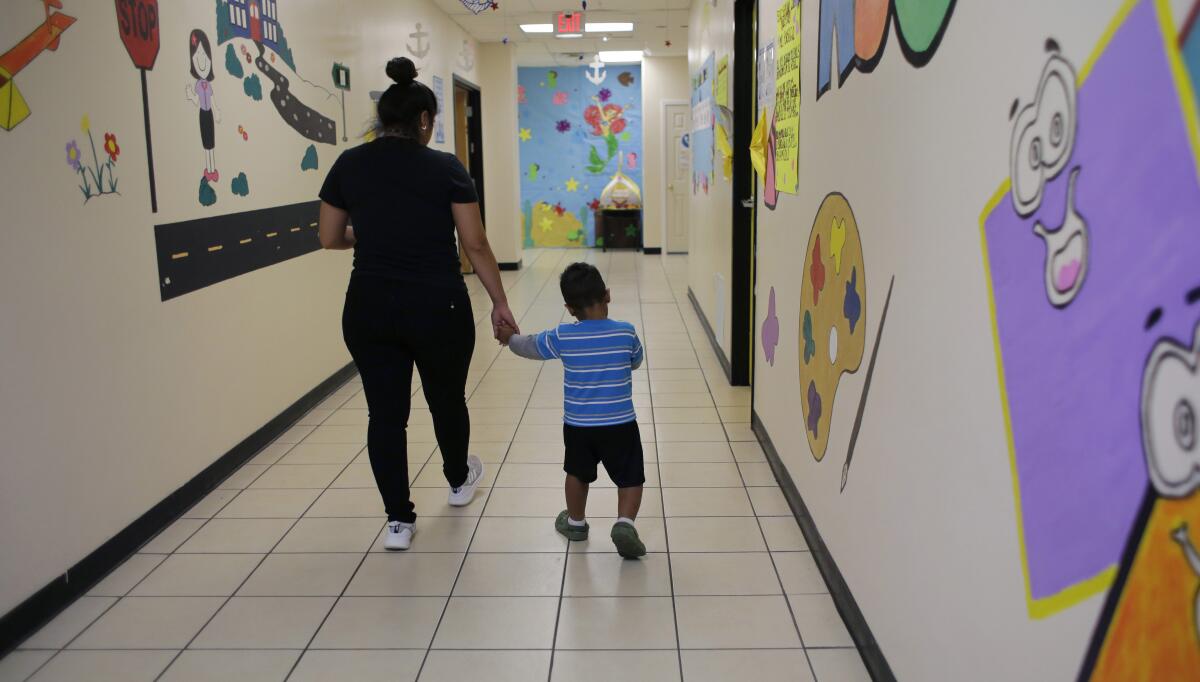
SAN BENITO, Texas — On a recent day in a remodeled brick church in the Rio Grande Valley, a caregiver tried to soothe a toddler, offering him a sippy cup. The adult knew next to nothing about the little 3-year-old whose few baby words appeared to be Portuguese. Shelter staff had tried desperately to find his family, calling the Brazilian consulate and searching Facebook.
Nearby, infants in strollers were rolled through the building, pushed by workers in bright blue shirts lettered “CHS,” short for Comprehensive Health Services Inc., the private, for-profit company paid by the U.S. government to hold some of the smallest migrant children.
Sheltering migrant children has become a growing business for the Florida-based government contractor. More than 50 babies, toddlers and teens were closely watched on this day inside this clean, well-lit shelter surrounded by chain link fences.
A joint investigation by the Associated Press and the PBS news program “Frontline” has found that the Trump administration has started to shift some of the caretaking of migrant children from mostly religious-based nonprofits to private, for-profit contractors.
So far, the only private company caring for migrant children is CHS, owned by Washington, D.C.-area contractor Caliburn International Corp. In June, CHS held more than 20% of the migrant children who are in government custody. And even as the overall number of children in U.S. custody has declined, the federal funding for their care has continued to flow. That’s partly because CHS is still staffing a large Florida facility with 2,000 workers, even though the last children left in August.
Trump administration officials say that CHS is keeping the Florida shelter on standby and that they’re focused on the quality of care contractors can provide, not about who profits from the work.
“It’s not something that sits with me morally as a problem,” said Jonathan Hayes, director of the Department of Health and Human Services’ Office of Refugee Resettlement. “We’re not paying them more just because they’re for-profit.“
Asked during a White House visit Thursday about the AP and “Frontline” investigation, Trump’s Health secretary, Alex Azar, pushed back and said the findings were “misleading.” But he did not address the government’s ongoing privatization of the care for migrant children.
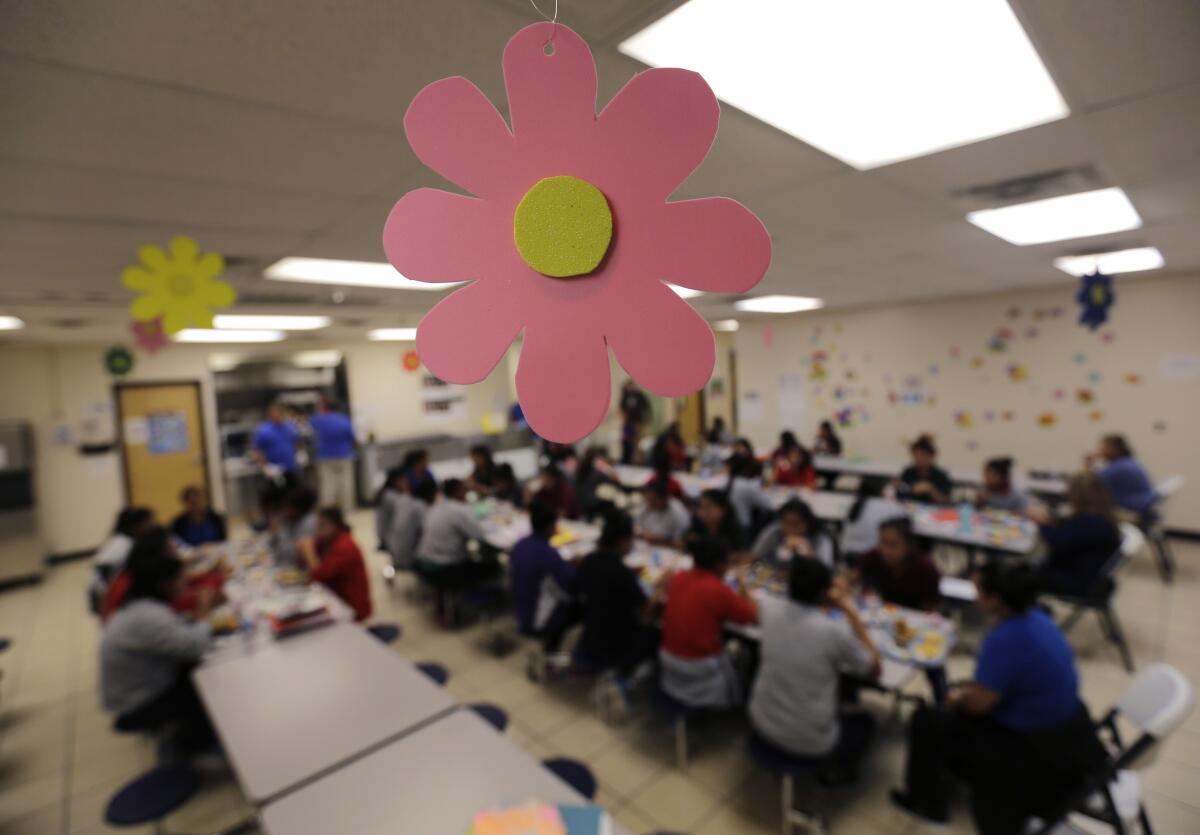
Former White House Chief of Staff John F. Kelly was added to Caliburn’s board this spring after stepping down from decades of government service. He had joined the Trump administration as Homeland Security secretary and backed the idea of taking children from their parents at the border, saying it would discourage people from trying to immigrate or seek asylum.
Critics say this means Kelly now stands to financially benefit from a policy he helped create.
Houston Police Chief Art Acevedo said that Kelly, a retired general, told him firsthand that he believed enforcing a “zero-tolerance” policy would serve as a deterrent.
“What’s really the motivator, the deterrence or the dollar?” said Acevedo, who signed an Aug. 14 letter with dozens of other law enforcement leaders asking Trump to minimize the detention of children. “I would question that if he’s getting one dollar for that association.“
Kelly did not respond to requests for comment. But in a statement, Caliburn’s president, Jim Van Dusen, said: “With four decades of military and humanitarian leadership, in-depth understanding of international affairs and knowledge of current economic drivers around the world, Gen. Kelly is a strong strategic addition to our team.”
This year, after he left the government, Kelly was widely criticized by activists who spotted him in a golf cart at the shelter in Homestead, Fla. The facility was at least temporarily shut down in August after numerous lawmakers said holding that many children in a single facility was abusive.
Meanwhile, CHS was getting more business housing migrant children. Today it’s operating six shelters, including three “tender age“ shelters that can house the youngest children — infants and toddlers — in the Rio Grande Valley. The company also said it has plans to run another 500-bed shelter in El Paso.
“The United States is the country in the world that detains the most children for immigration reasons, and probably for the longest period of time. No other country comes close,” said Michael Bochenek, a Human Rights Watch attorney who serves on a United Nations research team examining the global detention of children. “To have private companies move into the area of the care and custody of children in detention-like settings is especially troubling.”
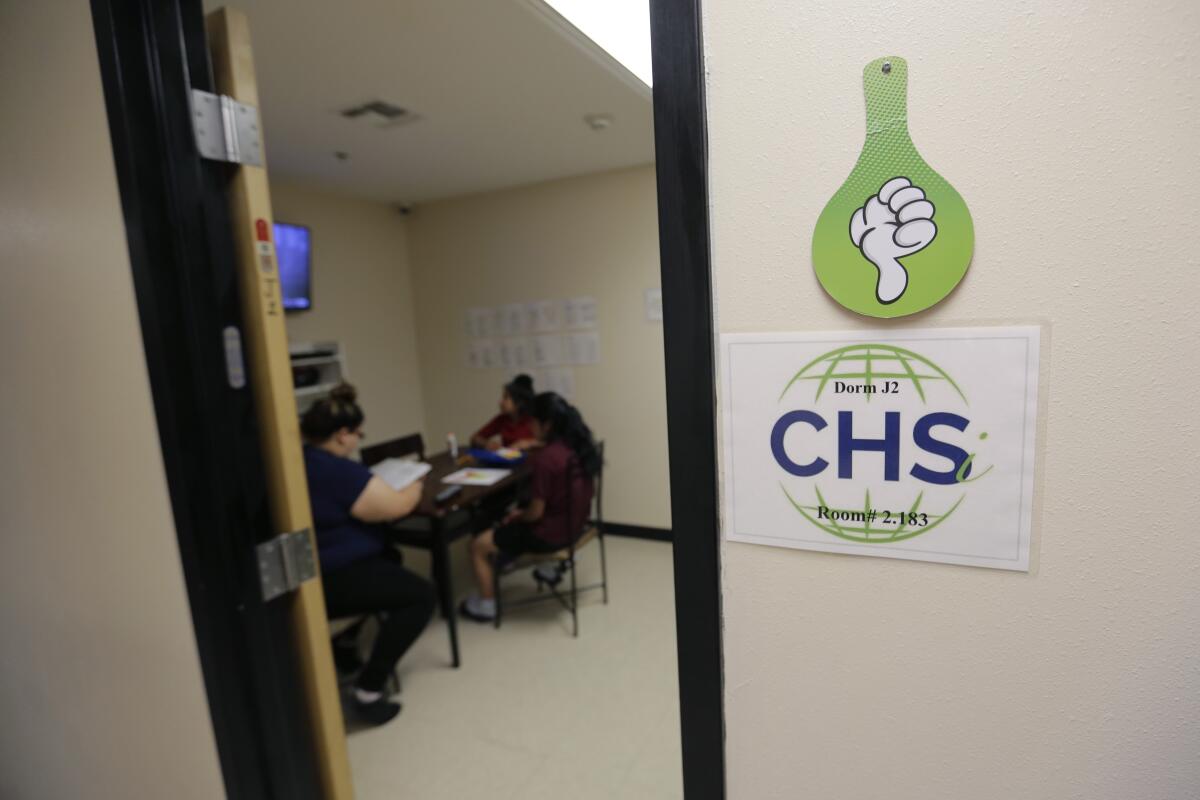
Melissa Aguilar, the executive director of CHS’ shelter care programs, said they’re not separating children — they’re caring for children.
“We’re doing the best that we possibly can,” she said. “The children are borrowed. They’re borrowed for our purpose, right? So a lot of times when something is borrowed, you take care of them better than you would something that is your own.”
Overall, the federal government spent a record $3.5 billion caring for migrant children over the past two years to run its shelters through both contracts and grants.
During that time, CHS rapidly moved into the business of caring for migrant children, an AP analysis of federal data found. In 2015, the company was paid $1.3 million in contracts to shelter migrant children, and so far this year the company has received almost $300 million in contracts to care for migrant kids, according to publicly available data. The company also operates some shelters under government grants.
So far this budget year, the Office of Refugee Resettlement funded 46 organizations running more than 165 shelters and foster programs to care for more than 67,000 migrant children who were separated from their parents or caregivers at the border or who came to the United States on their own.
The Obama administration also grappled with how to handle large numbers of children crossing the border. In the 2014 budget year, some 68,000 migrant kids were apprehended at the border, as compared with 72,000 this year, but President Obama’s head of U.S. Customs and Border Protection, Gil Kerlikowske, said that five years ago they were almost always quickly reunited with their families or other sponsors.
The number of children in shelters grew under Trump in part because of new requirements that every adult in a child’s potential home be screened significantly slowed reunifications.
Confidential government data obtained by the AP show that in June, about 1 in 4 migrant children in government care were housed by CHS. That included more than 2,300 teens at the Homestead facility and more than 500 kids in shelters in South Texas. For each teen held at Homestead at that time, it cost taxpayers an average of $775 a day.
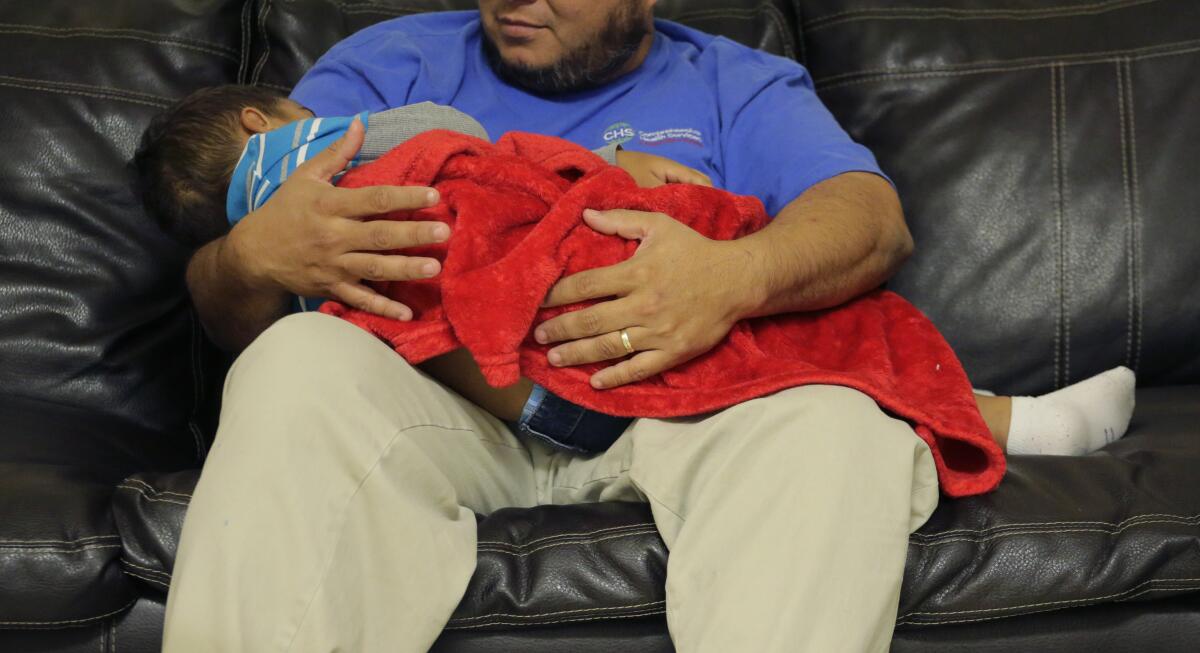
Although CHS is the first private company to provide shelter for migrant children, other private companies have been providing other services relating to the care of migrant children for more than five years. GEO Group, for example, runs several migrant family shelters. Defense contractor General Dynamics Information Technology, whose board includes Trump’s former Defense Secretary James N. Mattis, has contracts to review children’s case files and make sure they are reunited with their parents or placed in safe homes, often with other relatives. Intelligence contractor MVM Inc. holds contracts to transport migrant children by bus, van or airplane.
Going forward, the government plans to hand over its own facilities for migrant children to private providers who would get paid to run them. Site searches are underway to open shelters with about 500 beds each in Phoenix, Dallas-Fort Worth, Houston and San Antonio, according to HHS spokesman Mark Weber.
Andrew Lorenzen-Strait, who until recently helped run adult custody programs at U.S. Immigration and Customs Enforcement, said some former ICE staffers now at the Health and Human Services Department have brought the agency the concept of privatizing migrant child detention. He said it mirrors a similar shift that occurred with ICE’s adult immigration detention centers, where populations soared after immigrants were moved out of county jails into private, for-profit facilities.
After 18 years of government service, he recently quit in frustration over the agency’s actions, including the treatment of migrant children, he said. He went to work for nonprofit Lutheran Immigration and Refugee Service, which places migrant children in foster homes.
“These aren’t commodities,” he said. “This isn’t Amazon.com. You can’t just order up migrant care.“
More to Read
Inside the business of entertainment
The Wide Shot brings you news, analysis and insights on everything from streaming wars to production — and what it all means for the future.
You may occasionally receive promotional content from the Los Angeles Times.

